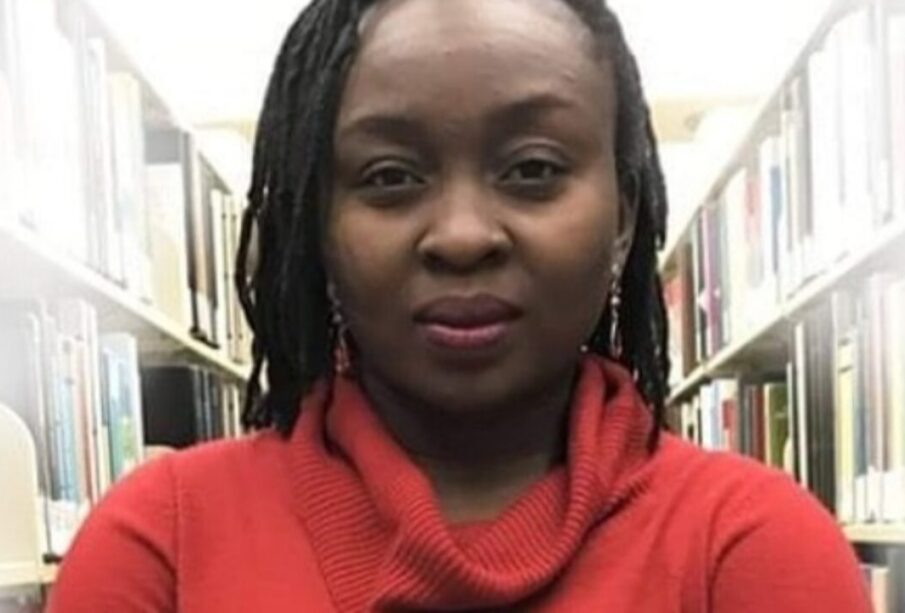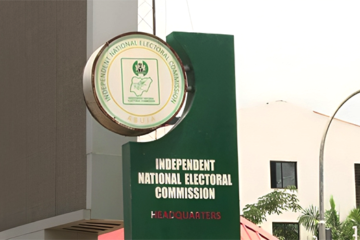The Lagos Necropolis [OPINION]

Abimbola Adelakun
By Abimbola Adelakun
Since the ill-fated night of October 20, 2020, the Babajide Sanwo-Olu administration has heavily invested in propagating its version of what went down. One press release issued by the Permanent Secretary in the Ministry of Health, Dr Olusegun Ogboye, to deflate the outrage following the leaked memo revealing that the Lagos State Government planned a mass burial for the 103 victims of the 2020 #EndSARS violence punched a hole in one of their strongest arguments. From the Dis-Information Minister, Lai Mohammed, to state officials who traversed the news media circuits over the Lekki toll gate incident, one of their most vehement defences was that many deaths could not have occurred as claimed without families coming forward to claim their losses. It took only three years for the government to inadvertently confirm that some of us are actually officially faceless, nameless, disconnected from kith and kin, and can be disposed of like nothing.
As one has come to expect of Nigerian bureaucratic riposte to public disquiet, the Lagos press release on the mass burial Ogboye followed the standard format of prefacing the point with feigned anger at a misinformed public, pejoratively schooling people for what they got wrong, finally making the expected point, and rounding off with a scold. Apart from not departing from this pattern, they were also more concerned with responding to those they consider mischief-makers than reflecting on the moral import of 103 people (and likely more) dying in a single day in a single city. The way the government glibly stated that they picked up their bodies in several neighbourhoods around the city, one would be forgiven for thinking these people were merely a herd of cows struck by thunder while grazing.
If the feverish explanations of Lagos State officials fail to convince anyone of their sincerity, it is because we are reeling at the horror of the city as a sprawling necropolis. So many lives can be lost, and the government cannot stretch itself to dignify them by at least finding out their identity and killers? It must be far much easier to stick people in the ground and forget them than to take the trouble to come to terms with the cheapness of life and death under your administrative watch.
Ogboye’s write-up concludes interestingly: The government, therefore, appeals to social media rumour mongers to please allow the hapless families of the unclaimed loved ones a deserved closure. Such self-contradiction! If the whole point of mass burying 103 people is because nobody came forward to claim them, then who are these “hapless families” getting “deserved closure” on whose behalf you are appealing for sensitivity? What kind of emotional closure is possible for the families who are still out there unknowing of the fate of their deceased, and will probably never know now that those people will be undistinguishably buried in an unmarked grave with many others? If the state had truly believed some families out there deserved closure, it would have tried harder.
Of course, they claimed that they sponsored several newspaper advertisements announcing that families missing a loved one should come forward and take a DNA test to ascertain whether they are related to the people lying in the morgues. Whether the people looking for a missing person in Nigeria buy a daily newspaper every single day to get that information and respond accordingly is a question only Lagos State can answer. But waiting for people’s families to respond should not preclude giving the dead a face and getting justice for them.
Funnily enough, the state explained that some of the unfortunate victims were killed in community clashes. Were those combatant invaders from Mars that no one knew any of them in Fagba, Ajah and other communities? For the state to be certain that their deaths were a consequence of community clashes, they must also have some information on who they clashed with, where the clashes happened, who killed who, and who should be charged for murder. As for the ones that they claimed died during a jailbreak at the Ikoyi prison, finding them should not be so hard when there are prison records. Or, are they saying they throw people in jail without adequate records of who they are and to whom they are related to? Regularly, we hear of the billions of naira allocated to feeding prisoners. I find it hard to believe that the government spends so much money on their food without recording their existence.
What the reality of over 100 people being unidentifiable in a modern state like Nigeria tells us is that we still do not have a proper accounting system for the humans living within our domains. We are a society where the government votes massive amounts of money to purchase surveillance equipment like CCTV and so on but without a commensurate outcome in securing lives and properties. Despite subjecting people to endless data capture for different purposes, over 100 people can still get lost within a single city and nobody knows anything about them? No wonder bandits in Nigeria make videos without bothering to mask their faces anymore. The fact that a criminal unveils their face before the public glare does not make them un-faceless to the Nigerian government.
Meanwhile, one cannot argue that the means to account for people does not exist. It does. When a young man made a snarky comment about former first lady Aisha Buhari on Twitter, the police managed to track him down to arrest him even though they had to lay in wait for him for about six months. In this Nigeria where over 100 people will be thrust into a mass grave it has never been hard to fish out people for punishment. That is the way of the Nigerian state. When they need to destroy lives, government agents can be madly efficient with their use (and abuse) of institutional resources. When you ask them to use that same ingenuity to improve the quality of life for the people they govern, they have no clue how to summon their wits. They can destroy, not create.
The fate of these poor Lagosians—to be dumped in a mass grave at a cost higher than an annual minimum wage—says so much about the operations of life and death in the Nigerian necropolis. Life and death are not necessarily opposites; they are a continuum. How a society treats death is always indicative of their attitude towards life. People who do not give dignity to the dead will hardly be concerned about life either. One of our biggest failings in this part of the world is the levity with which we take life; it is the reason we trail behind civilisation while the rest of the world soars to unimaginable heights. Everything the societies we call “advanced” have invented, from their technology to ideologies, has been to enhance life. Every use of their God-given thinking faculties has been to give life and more abundantly. Societies without a similar drive towards improving life will either be enslaved to the ones that take life seriously or perish.
There is a reason, every year, thousands of Africans die in the Mediterranean while trying to cross over to Europe and you never hear from the government of their respective countries. There is hardly outrage at their death and there is almost no likelihood that any actionable plan to prevent a repeat is in the offing. Our leaders are often too busy trying to self-enrich to be bothered that some unfortunate people who have not yet lived are mass-buried in the cold depths of the heartless sea. Our lives never matter enough to warrant any attention. In those instances, it is still Oyinbos who will hold their leaders and institutions accountable for failing to rescue the poor souls.
Culled from The Punch











